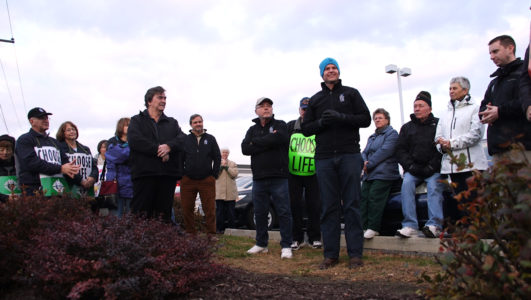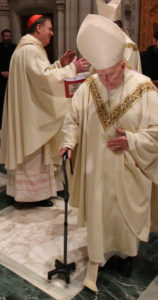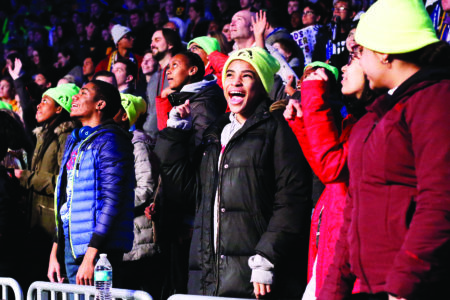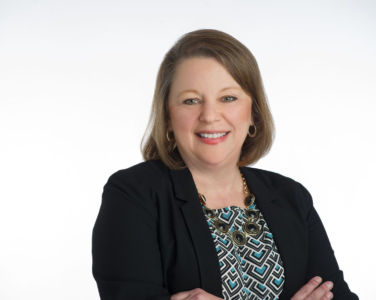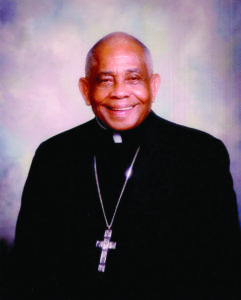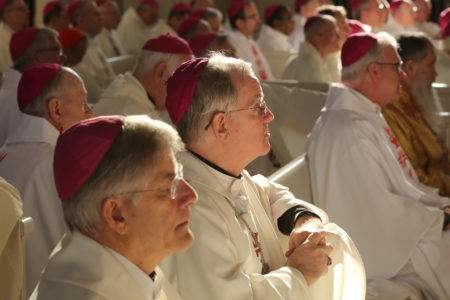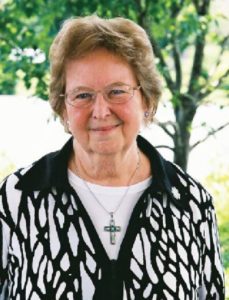NATION
Catholic Charities USA leaders outline immediate, long-term goals
WASHINGTON (CNS) – Two top Catholic Charities USA leaders outlined some of the short-term and long-term goals for the organization and its affiliates throughout the country Feb. 3 during the Catholic Social Ministry Gathering in Washington. Catholic Charities is in the midst of a five-year strategic plan to more sharply identify areas where it believes it can make a difference, said Brian Corbin, executive vice president of member services. One of those areas is refugee resettlement and immigration policy. Corbin said it has worked with Migration and Refugees Services of the U.S. Conference of Catholic Bishops to place 16,000 refugees across the country in collaboration with local Catholic Charities affiliates that have located sponsor families to help resettle those refugees. It also has partnered with the Catholic Legal Immigration Network, Corbin said, on issues surrounding the continued migration of Latin Americans to the United States. Affordable housing is another of Catholic Charities USA’s strategic priorities. “In your own town, you probably know there are housing issues,” Corbin said. “Catholic Charities as an institution is the largest nonpublic provider of housing after the government. We are there. We will continue to be there,” he said to applause. Catholic Charities’ commitment extends to shelters, domestic-violence shelters, transitional housing and permanent housing, he said.
House members introduce bipartisan measure to ban abortions at 20 weeks
WASHINGTON (CNS) – U.S. Rep. Chris Smith, R-New Jersey, was joined by more than 100 other members of the House Jan. 24 in introducing the Pain-Capable Unborn Child Protection Act of 2019, a measure that would ban abortions after 20 weeks of gestation. Smith, a Catholic, who is co-chairman of the House Pro-Life Caucus, is the lead sponsor of the bill, which cites research showing that unborn babies “can feel agonizing pain” at 20 weeks of development. “The majority of Americans — some 59 percent according to a recent poll — support legal protection for pain-capable unborn children,” Smith said in introducing the bill. He was referring to results of an annual poll of Americans’ views on abortion conducted by the Marist Poll at Marist College and sponsored by the Knights of Columbus. The poll also showed that 75 percent of respondents want “substantial” restrictions on abortion access even as more than half of respondents describe themselves as “pro-choice.” The poll was conducted Jan. 8-10 and the results were released ahead of the Jan. 18 March for Life. “Today we know that unborn babies not only die but suffer excruciating pain during dismemberment abortion — a cruelty that rips arms and legs off a helpless child,” Smith said. “This tragic human rights abuse must end.”
Priest who was former national Renew leader and beloved pastor dies
TUCSON, Ariz. (CNS) – Msgr. Robert D. Fuller, an Arizona priest who was a national leader of the Renew movement in the early 1980s and a beloved pastor in the Tucson Diocese, died Jan. 23. He was 88. “We are privileged from time to time to meet a living giant,” said retired Tucson Bishop Gerald F. Kicanas, who worked with Msgr. Fuller for most of the last two decades. “I experienced that when I met Msgr. Fuller. He was an outstanding priest, a great preacher and a person of deep faith. He now enjoys the fulfillment of what he preached.” Tucson Bishop Edward J. Weisenburger will be the main concelebrant of a funeral Mass Feb. 1 for Msgr. Fuller at St. Augustine Cathedral in Tucson, followed by interment at Holy Hope Cemetery. Ordained a priest for the Tucson Diocese April 25, 1956, his assignments included serving as director of the Bureau of Information, which later became the diocesan Communications Office. He was appointed editor and business manager of the Arizona Register, as the diocesan newspaper was called, on June 7, 1963, after serving as assistant editor in 1961-63. Msgr. Fuller left Tucson for five years, from 1981 to 1986, to work for Renew, which is based in Newark, New Jersey. Renew fosters spiritual renewal in the Catholic tradition at the parish level by empowering individuals and communities to encounter God in everyday life.
Bishop tells Covington Catholic High School community he stands with them
COVINGTON, Ky. (CNS) – You could literally hear a pin drop as the faculty, staff and student body of Covington Catholic High School waited in the gym Jan. 23 for the arrival of Covington Bishop Roger J. Foys. The bishop was there to address the students about the events that took place Jan. 18, after the March for Life in Washington, where a student standing face-to-face with a Native American elder was captured on video and ignited a firestorm on social media — making headlines around the world. Bob Rowe, principal, opened with a prayer and introduced Bishop Foys, who said: “These last four days have been a living hell for many of you, for your parents, for your relatives, for your friends and it certainly has been for me.” He told the assembly they are “under all kinds of pressure from a lot of different people, for a lot of different reasons.” The bishop also told the assembly that the contingent of students who went to the March for Life represented the best of the church and the diocese by standing up for life. Bishop Foys said an independent third party is investigating the Jan. 18 events that followed the march and he asked everyone to stay off of social media with regard to those events until the matter is resolved. “Regardless of what you heard or what you’ve read or what you think, I am on your side. I want you to come out of this in a positive light,” he said.
VATICAN
Vatican underlines support of universal health care coverage
GENEVA (CNS) – The Vatican supports efforts to build stronger and sustainable essential health care services on the way toward achieving universal health coverage, a Vatican official said. The Catholic Church is part of this effort in providing primary care to people in need and always “with due recognition to the sacredness of human life, from conception to natural death,” said Archbishop Ivan Jurkovic, Vatican observer to U.N. agencies in Geneva. Speaking to the executive board of the World Health Organization Jan. 28, the archbishop noted the organization’s call for a renewal of primary health care and the Sustainable Development Goals’ target of universal health coverage to “ensure healthy lives and promote well-being for all at all ages. The Holy See affirms the call to mobilize all stakeholders to take joint action to build stronger and sustainable primary health care toward achieving universal health coverage,” he said in a brief address. In fact, over the course of 2018, “Catholic-inspired organizations provided health care at 5,287 hospitals and 15,397 dispensaries, 15,722 residential programs for the elderly and for persons living with debilitating chronic illnesses and other disabilities in all parts of the world,” he said.
Pope arrives in Abu Dhabi, praying for nearby Yemen
ABU DHABI, United Arab Emirates – The sun had set long before Pope Francis arrived in Abu Dhabi Feb. 3, but Sheik Mohammed bin Zayed Al Nahyan, the crown prince, and Egyptian Sheik Ahmad el-Tayeb, grand imam of al-Azhar, still went to the airport to welcome him. It had been a rare rainy day on the southeast coast of the Arabian peninsula, which, the pope told reporters traveling with him, was seen as a sign of blessing by the people of the United Arab Emirates. Since the pope arrived at almost 10 p.m. local time, the official welcoming ceremony was scheduled for the next day. But there was a brief greeting inside the President’s Airport. The pope then went to Al Mushrif Palace, the government’s guesthouse for visiting foreign dignitaries.
